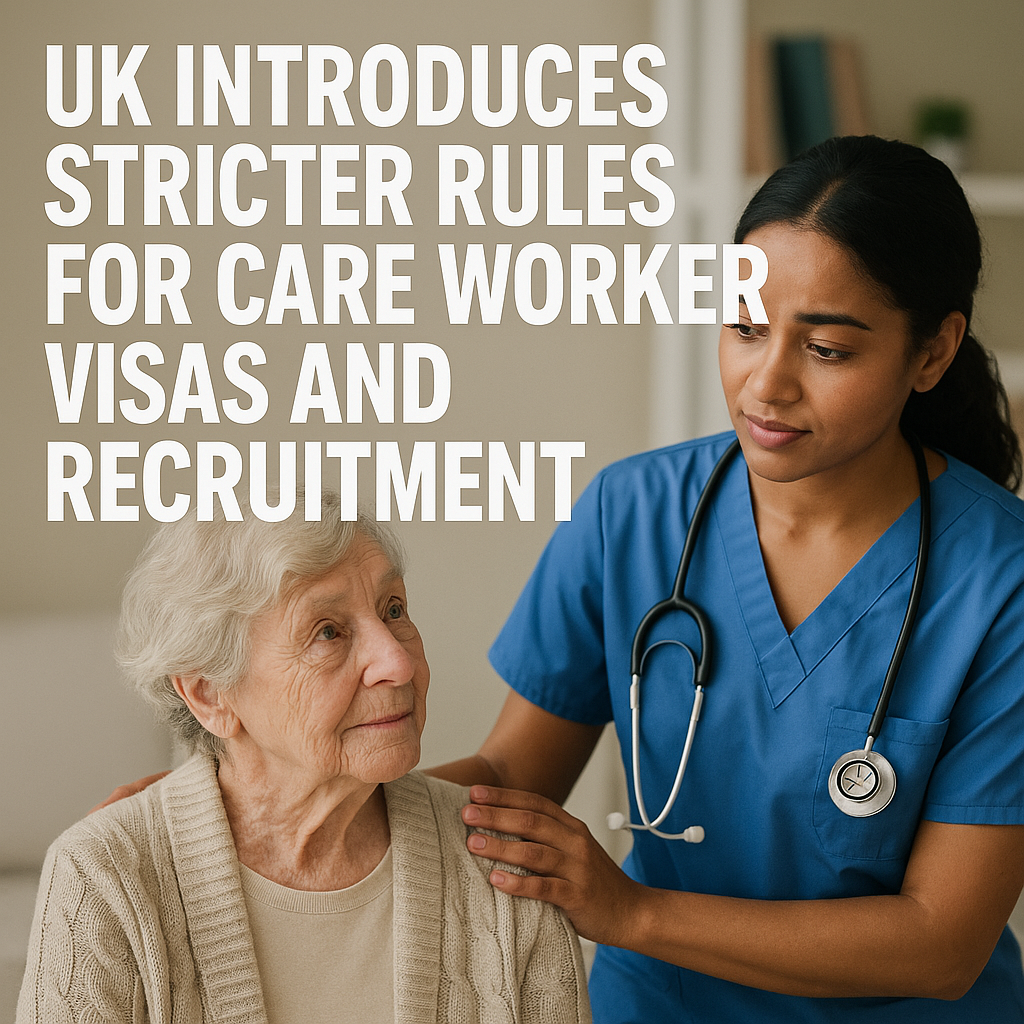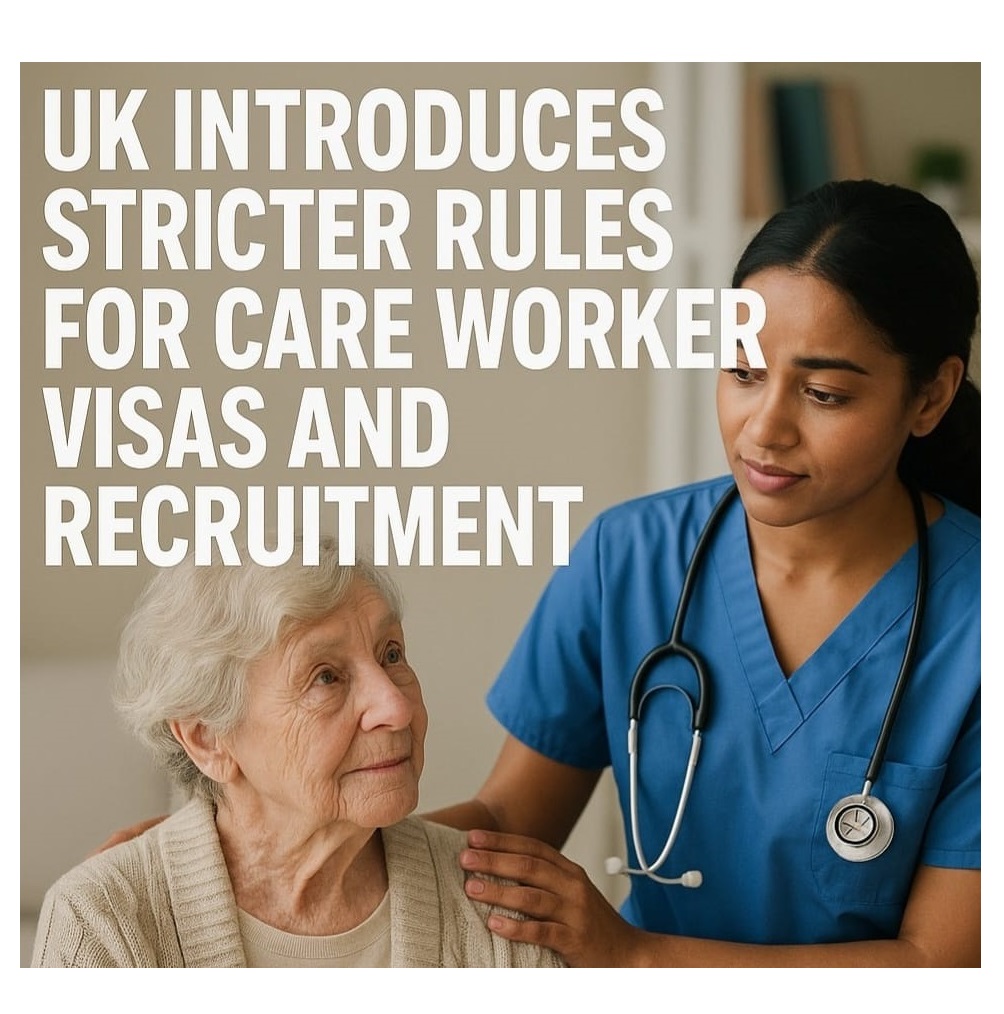London New immigration rules announced by the UK government today are set to reshape how care workers are hired and sponsored in England. The updated policy places greater responsibility on care providers to hire workers already in the country before turning to overseas recruitment.

From now on, employers must first try to recruit care workers who are already living in the UK — especially those who lost their previous jobs due to changes in sponsorship. They’ll need to prove that they’ve made these efforts before bringing in new international staff.
This move aims to protect care workers already settled in the UK while reducing overreliance on new overseas hires.

Minimum Salary Raised
Another major change is the increase in the minimum salary requirement for skilled care workers. Any new applicants must now be offered at least £12.82 per hour, or around £25,000 per year based on full-time hours.
The government says the updated pay threshold is based on national wage data and is designed to ensure fair compensation for care workers.
Focus on Domestic Recruitment
Officials say the goal is to strengthen the domestic care workforce, improve job quality, and crack down on cases of exploitation in the sector. There’s been growing concern about care workers being mistreated or left in vulnerable positions, especially when sponsorship fall through.
To support the transition, the Department of Health and Social Care plans to invest more in training and career development for UK-based workers.
Industry Warns of Challenges Ahead
However, care providers warn that the new rules could lead to more staffing shortages, especially as visa applications from overseas workers have already dropped since restrictions were placed on bringing dependants.
Some in the sector argue that while the intention is right, the timing could place extra strain on already stretched services.
The government insists these changes are part of a longer-term plan to create a more ethical and sustainable care system — one that values both UK workers and the international staff who support them.





